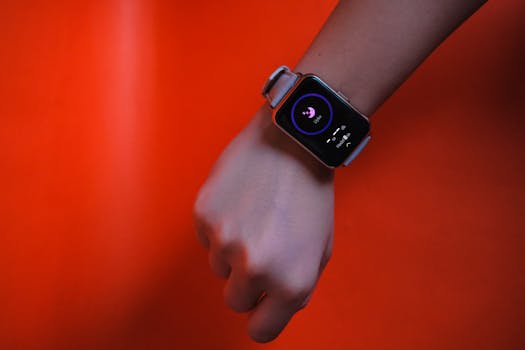
Table of Contents
Smart Home Devices


Smart home devices can learn your routines and preferences, adjusting automatically to provide a seamless experience. For instance, smart thermostats can optimize your home’s heating and cooling based on your schedule, significantly reducing energy bills. Additionally, smart security systems offer real-time monitoring and alerts, ensuring peace of mind when you’re away from home.
As technology continues to evolve, we can expect even more advanced features in smart home devices, including AI-driven systems that anticipate your needs and preferences. This not only improves your daily life but also contributes to a more sustainable and efficient way of living.
Health Technology

Moreover, health tech innovations such as remote patient monitoring devices enable individuals with chronic conditions to keep track of their health metrics in real-time. This not only empowers patients to take charge of their health but also provides healthcare professionals with critical data for better decision-making.
Wearable devices like fitness trackers and smartwatches have gained immense popularity for their ability to monitor vital signs, track physical activity, and even detect sleep patterns. These devices motivate users to lead healthier lifestyles by providing personalized insights and encouraging goal setting.
Wearable Devices

In addition to fitness tracking, wearables are now incorporating features like stress management and mindfulness exercises. Devices that offer guided breathing exercises or notifications to take breaks can significantly enhance your overall well-being. Furthermore, advancements in wearable technology are leading to new products that can measure hydration levels, blood glucose, and even oxygen saturation, providing a comprehensive view of your health.
As technology progresses, we can expect wearables to become even more sophisticated, potentially integrating with other smart home devices for a holistic approach to health and wellness.
Sustainable Technology

Smart energy management systems can help households optimize their energy usage, reducing waste and lowering utility bills. Additionally, smart appliances with energy-efficient settings can further contribute to a sustainable lifestyle. For instance, smart refrigerators can monitor food freshness and suggest recipes based on available ingredients, promoting less food waste.
Moreover, sustainable transportation technologies, including electric vehicles (EVs) and e-bikes, are transforming how we commute and travel. By reducing reliance on fossil fuels, these technologies not only improve individual lifestyles but also contribute to a healthier planet.
Virtual Reality

Moreover, VR is being used in mental health therapy, offering immersive environments for relaxation and mindfulness. These applications can help users manage stress, anxiety, and other mental health issues in a unique and effective way.
As VR technology continues to advance, the possibilities for enhancing our lifestyles are endless. From virtual travel experiences to interactive learning environments, VR is set to play a significant role in how we live and learn in the future.




